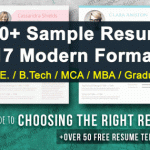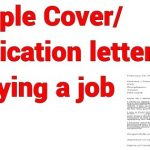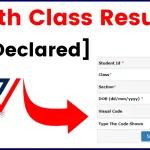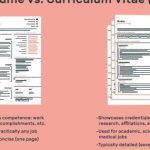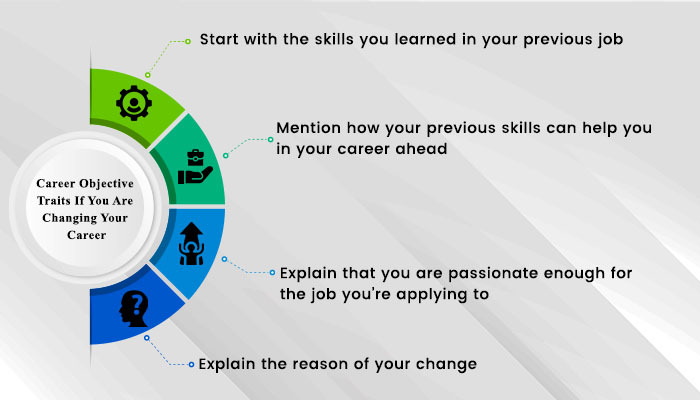When creating a resume, one of the most important sections is your educational background. Adding your school information in a clear and effective way is crucial to make a good impression on potential employers.
Where to Include Education on Your Resume
Your school information should be placed in the “Education” section of your resume. This section typically comes after the “Work Experience” section, but it can be moved to the top if you are a recent graduate with limited work experience.
Example:
- Education
- High School Name, City, State
- Graduation Year or Expected Graduation Year
- GPA (if applicable and above 3.0)
- Relevant coursework or academic achievements
- High School Name, City, State
What to Include in the Education Section
Here’s a list of what you should include when adding your school information:
- School Name: Always list the full name of the school.
- Location: Include the city and state where the school is located.
- Graduation Year: Mention when you graduated. If you are still studying, write “Expected Graduation Year.”
- Degree: If you are in high school, just mention “High School Diploma.” For college, specify your degree (e.g., Bachelor of Arts in History).
- GPA: Include your GPA if it’s above 3.0. This is optional but can be a plus, especially if you’re a recent graduate with little experience.
- Honors or Awards: Mention any academic awards, scholarships, or honors you’ve received.
- Relevant Courses: If you took any courses that are directly related to the job you’re applying for, you can include them.
Example:
- Education
- ABC High School, New York, NY
- Graduated: 2023
- GPA: 3.8
- Honor Roll for four years
- ABC High School, New York, NY
How to List High School Information
If you are still in high school or just graduated, it’s important to highlight this on your resume. You don’t have to provide a lot of details, but you should include the essentials such as your school name, location, and expected graduation date.
Example for Current High School Student:
- Education
- ABC High School, Los Angeles, CA
- Expected Graduation: June 2025
- GPA: 3.6
- Relevant Courses: Advanced Placement (AP) English, AP Math
- ABC High School, Los Angeles, CA
If you are a recent high school graduate, you can list the same information, but instead of “Expected Graduation,” mention your actual graduation date.
Example for Recent High School Graduate:
- Education
- XYZ High School, Miami, FL
- Graduated: June 2024
- GPA: 3.9
- President of the Debate Team
- XYZ High School, Miami, FL
Including College Education
If you have already graduated from high school and are now in college or have graduated from college, your high school information becomes less important. In this case, your college education should take priority on your resume.
For college students or recent graduates, you can structure your education section like this:
Example for Current College Student:
- Education
- University of California, Berkeley
- Bachelor of Science in Computer Science
- Expected Graduation: May 2026
- GPA: 3.7
- Relevant Courses: Data Structures, Algorithms, Software Development
- University of California, Berkeley
Example for College Graduate:
- Education
- University of Texas, Austin
- Bachelor of Business Administration (BBA)
- Graduated: May 2023
- GPA: 3.6
- Dean’s List (Fall 2022, Spring 2023)
- University of Texas, Austin
How to List Education When You Haven’t Graduated Yet
If you haven’t finished school, you can still list it on your resume. Make sure to mention that it’s ongoing or that you haven’t graduated yet. Also, don’t forget to include the expected graduation date.
Example for Incomplete College Education:
- Education
- Harvard University, Cambridge, MA
- Bachelor of Arts in Psychology
- Currently Enrolled (Expected Graduation: 2026)
- Harvard University, Cambridge, MA
If you didn’t complete your degree, but you attended college for a certain period, you can still include it but clarify that it was incomplete.
Example for Incomplete College Degree:
- Education
- University of Chicago
- Studied Political Science (2019–2022)
- Completed 60 credits toward Bachelor’s Degree
- University of Chicago
Including Academic Achievements
Employers appreciate seeing academic achievements on resumes. These could be awards, honors, or significant recognitions you received during your time in school.
If you were on the honor roll, received scholarships, or graduated with honors, these are all worth mentioning. Include this information under your school name or in a separate section labeled “Achievements” or “Honors.”
Example of Listing Academic Achievements:
- Education
- Stanford University, Palo Alto, CA
- Bachelor of Arts in English
- Graduated: 2023
- Honors: Magna Cum Laude, Recipient of Academic Excellence Scholarship
- Stanford University, Palo Alto, CA
When to Include GPA on Your Resume
Your GPA is an optional part of your school information, and you should only include it if it’s above 3.0 or if you’re a recent graduate. If your GPA is low, it’s better to leave it out, as it might not add value to your resume.
However, if you’re a student or recent graduate with little work experience, including a good GPA can help show that you are hardworking and academically successful.
Example of Including GPA:
- Education
- Florida State University
- Bachelor of Science in Biology
- Graduated: 2022
- GPA: 3.8
- Florida State University
How to Highlight Relevant Coursework
If you don’t have much work experience, highlighting relevant coursework can make your education section stand out. This is especially helpful for students or recent graduates applying for jobs in fields related to their studies.
Include the names of courses that are directly related to the job you’re applying for, but avoid listing every course you’ve ever taken.
Example of Highlighting Relevant Coursework:
- Education
- New York University, New York, NY
- Bachelor of Fine Arts in Film and Television
- Relevant Coursework: Cinematography, Screenwriting, Film Editing
- New York University, New York, NY
How to Write About School Projects
If you worked on significant school projects that relate to the job you’re applying for, consider adding these to your education section. School projects can demonstrate your skills, initiative, and ability to work as part of a team.
Example of Including School Projects:
- Education
- Massachusetts Institute of Technology (MIT)
- Bachelor of Science in Mechanical Engineering
- School Project: Designed a renewable energy water pump for rural communities
- Massachusetts Institute of Technology (MIT)
Where to List Certifications and Online Courses
If you have completed certifications or online courses that complement your formal education, you can list these in the education section or create a separate “Certifications” section. Certifications can be particularly useful for highlighting specialized skills that relate to the job.
Example for Including Certifications:
- Education
- University of Southern California
- Bachelor of Science in Business Administration
- Certifications: Google Analytics Certified, Project Management Professional (PMP)
- University of Southern California
Common Mistakes to Avoid
Here are some common mistakes to avoid when adding school information to your resume:
- Too Much Detail: Avoid listing unnecessary details like high school achievements if you’re a college graduate. Focus on what’s relevant.
- Inconsistent Formatting: Make sure that the formatting of your education section is consistent with the rest of your resume. Use the same font, spacing, and layout.
- Outdated Information: If you’ve graduated from college, there’s no need to list your high school details unless it’s your highest level of education.
- Exaggerating Achievements: Be honest about your educational background. Don’t exaggerate grades, honors, or achievements.
Tailor Your Education Section for the Job
Finally, remember to tailor your education section to the specific job you’re applying for. Highlight the aspects of your education that are most relevant to the job description, and leave out anything that isn’t necessary.
For instance, if you’re applying for a job in software development, you might want to emphasize relevant courses, projects, or certifications you completed during your studies that demonstrate your technical skills.
Latest Posts
- Step-by-step guide to download and apply for jee mains admit card 202
- Comprehensive 2025 government holidays and recruitment details for job seekers
- JEE Mains Admit Card 2025: Your Step-by-Step Guide to Downloading the Hall Ticket
- Everything You Need to Know About 2025 Government Holidays Recruitment
- Comprehensive Guide to rrb d group recruitment 2025 – Eligibility, Vacancies, and Application
- Detailed guide to nps trust recruitment 2025 vacancies, eligibility and apply process
- Comprehensive guide to hpcl recruitment 2025 notification, vacancies, and application process
- ignou bed admission 2025 complete recruitment guide with eligibility and process
- Comprehensive Guide to Indian Army Agniveer Recruitment 2025 Notification and Jobs
- Everything You Must Know About CBSE Board Exams 2025 Changes & New Rules


